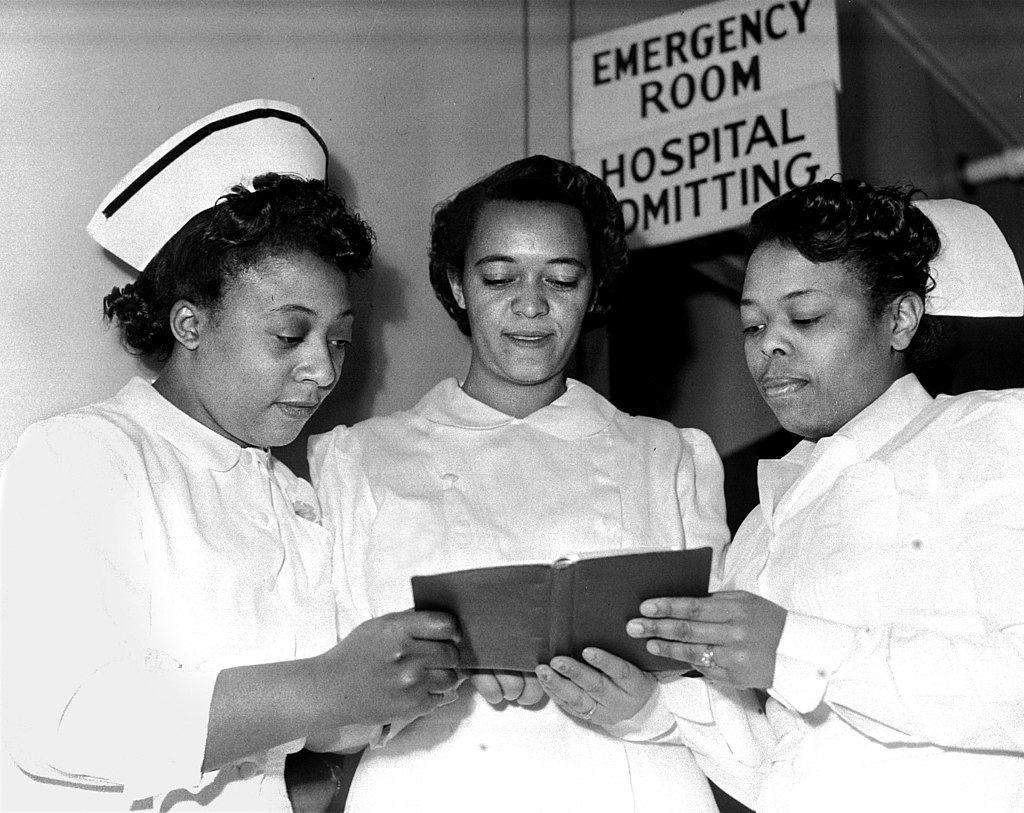Our health is wealth, and it's essential to take care of ourselves beyond the surface-level treatment. Yes, spa days, nail salon visits, shopping trips, and hair care can help you temporarily look and feel your best, but what about the beauty that lies within? The inner work of digging deep to understand our triggers, managing our mental capacity, understanding our traumas, and utilizing useful tools toward our growth and healing is vital to our well-being.
However, mental health in the Black community has often been met with resistance. But from Dr. Inez Beverly Prosser, the first Black woman to earn her Ph.D. in psychology, to Mary Eliza Mahoney, the first Black licensed nurse in the United States, these pioneering women were determined to eliminate stigmas and break down mental health barriers in the Black community.
There is no denying their indelible footprints and advocacy have significantly contributed to the fabric of mental health. Read on to take a look at five mental health heroes known for bridging the Black mental health access gap, which is a crucial component of our everyday lives, both then and now.
Inez Beverly Prosser, Ph.D.
Inez Beverly Prosser was a trailblazing force and a critical voice in the Black community when she became the first Black woman in 1933 to earn her Ph.D. in psychology from the University of Cincinnati. Her research focused on the intersection of educational psychology and the effects of racism, which she extensively detailed in her dissertation, "The Non-Academic Development of Negro Children in Mixed and Segregated Schools." Her dedication and research to the advancement of Black students and the impact of racial injustice on the personality and self-esteem of Black children is just as relevant today as it was in the 1930s.
Carolyn Robertson Payton, EdD
A woman of many firsts, Carolyn Robertson Payton, was a catalyst for change with a commitment to justice, equality, and inclusion. She was the first woman and the first Black psychologist to become the director of the U.S. Peace Corps. With her position, she was also the first individual psychologist within the government agency. Because of her professional achievements, gender as a qualifier was officially eliminated as a requirement for overseas positions.
While completing her master's degree for her thesis, she examined the Wechsler-Bellevue Test of Intelligence, which at the time were newly developed "tests [that] are the primary clinical instruments used to measure adult and adolescent intelligence." In her findings, it was determined the test supported a false measure of the authentic aptitude of Black men and women. Not to mention, she was one of the founding members of the Task Force on the Psychology of Black Women.
Mamie Phipps Clark, Ph.D.
Best known for the Clark Doll Test, psychologist Mamie Phipps Clark alongside her husband, developed the social experiment to showcase how children internalized racism and how societal views affected a child's development and self-esteem. By displaying two dolls, one white and one Black, children were asked a series of questions such as which figure they identified with the most or the one they preferred to play with, as well as which doll was considered a "nice" doll, and which one was seemingly a "bad" doll.
Their findings concluded that the Black doll was chosen as the "bad" one by nearly 60% of the children, and the white doll was picked by almost 33% of children as the one they most resembled. The study played an instrumental role in the Brown vs. the Board of Education case. It proved the damaging effects of segregation on children leading to the Supreme Court's ruling that racial segregation in U.S. schools was unconstitutional.
Mary Eliza Mahoney
In 1879 Mary Eliza Mahoney shattered the glass ceiling for Black women by becoming the first Black licensed nurse in the United States. She was only one of four students out of a student body of 42 to complete the extensive 16-month program. She continued her legacy by founding the National Association of Colored Graduate Nurses in 1908. The NACGN worked tirelessly to improve access to educational and nursing practices for Black women, with a primary focus to elevate the standards and daily lives of Black registered nurses. The organization's profound impact helped to bring racial discrimination in the nursing profession to the forefront. Her contributions led to her induction into the American Nurses Hall of Fame and the National Women's Hall of Fame.
Margaret Morgan Lawrence
Overcoming many obstacles in her 105 years, Margaret Morgan Lawrence was a trailblazer in many ways. Not only was she the first Black woman to become a psychoanalyst, but she was also the first Black woman to become a certified physician by the American Board of Pediatrics. Her entire career was devoted to children's mental health disorders and the well-being of underserved children. And that's not all!
Dr. Lawrence was responsible for spearheading programs in child psychotherapy in schools, clinics, and daycare centers. Her leading-edge techniques and two of her textbooks that she authored discussing the concepts of dealing with children with mental impairments are still widely used today by therapists. Throughout the 1970s and '80s, she was also a part of the New York State Planning Council for Mental Health.
